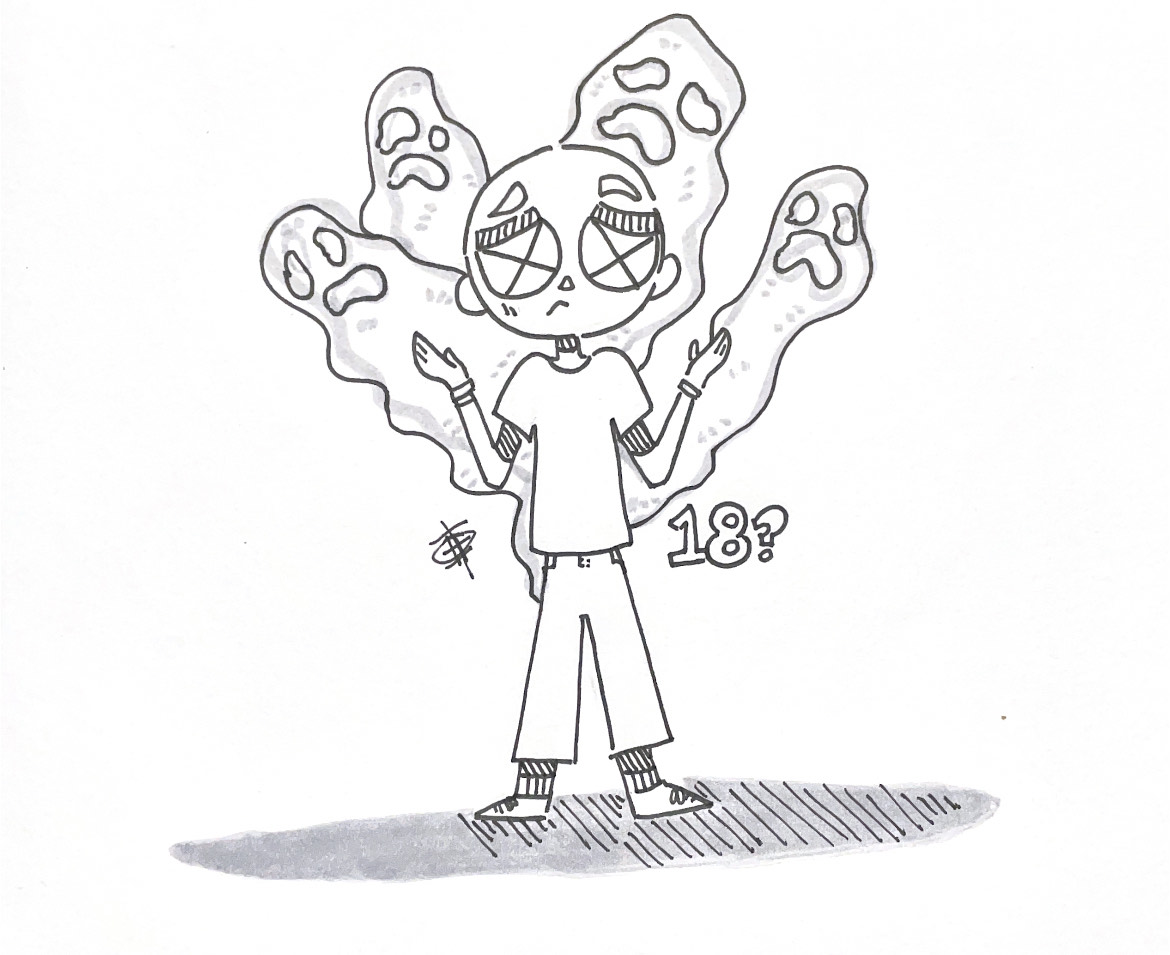“Yes,” “No,” “Maybe,” “Ask your mom,” and “Ask your dad”.
We’ve all heard these answers from our parents whenever we want to do something that does not involve being with our families. But how much freedom comes or should come with being in high school or even being an adult?
Well, that usually depends on what your parents allow you to do in certain situations. The freedom to make our own choices at this age is limited for multiple reasons. But mainly, many people think that we are not capable of making rational decisions on our own. For example, if I told my mom I wanted to go camping alone, she would say no, probably thinking that I would not be capable of doing it on my own. (To be fair, I’m probably not capable of setting up a tent, let alone camping, but still).
While growing up, we come into the period that I like to call the gray area of our teenage years. We are expected to act like adults while being treated as a child due to the fact that we aren’t eighteen yet. When we do turn eighteen, we aren’t trusted with some of the decisions that adults make. At the age of eighteen, in the United States, you are old enough to vote, own a gun, and marry. Despite this, many studies show that our brains are not fully developed until we turn twenty-five years old.
During the ages of seventeen to around twenty-five comes a navigation of weird situations when we are or aren’t allowed to do certain things. It’s like being eighteen in high school; you think “I am an adult, but I am still legally required to be here?” Some loopholes make it seem as if you aren’t necessarily an adult. Once you turn eighteen, it’s just the beginning of a road of faking it ‘till you make it.
Not surprisingly, parents are also one of the main sources of how much freedom we attain and, therefore, a crucial part in deciding our lives. After further research, I came across four different types of parenting: authoritarian, authoritative, permissive, and uninvolved. Depending on our parents’ beliefs, culture, and habits, we are treated a certain way. The styles may overlap sometimes but usually, we fall into one of those four categories.
Authoritarian parenting is when parents have strict rules with strong punishments. Authoritative parents include discipline as a way of supporting their children, and they can have input on their expectations. Contrastingly, permissive parents are caring but with minimal expectations of their kids. The fourth type is uninvolved parenting, when they are given a lot of freedom since the parents are usually out of the way.
So, can we really gain enough freedom to feel as if we are pre-adults during our teenage years? And if so, how much do we really need to feel as if we are managing it appropriately and not abusing the amount given? I believe the key to finding a balance in this minefield of confusing emotions, freedoms, and responsibilities is communication. I think that whether it’s with your parents or with other adults in your life, the only way to get to the core of the animosity is to communicate. If these concerns that many teenagers have are not addressed, they could lack the courage to take responsibility later on or own up to their mistakes.
A way that communicating could be for both the parent and the child is to be open about important things. This shouldn’t be confused with not setting up boundaries, but mainly with telling the truth about potentially dangerous or significant situations. It’s a good reminder that parents usually aren’t there to dictate your life, but support it and encourage you in different milestones.










